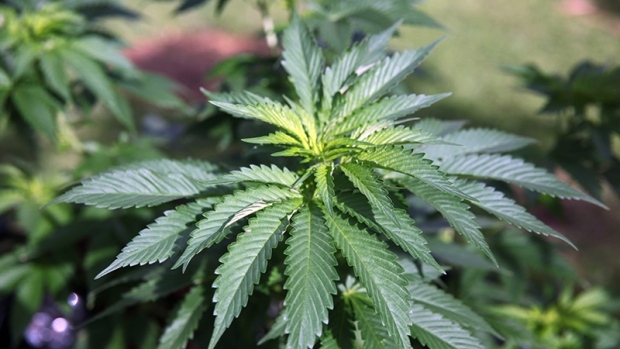
A new study led by researchers at the University of Manitoba is bringing into question just how effective the medicinal cannabis system is in Canada.
Shawn Newman said outside a local retail cannabis shop that he used to have a medical authorization to use cannabis for chronic pain. After legalization nearly five years ago, he hasn’t renewed it.
«Because it’s just so widely available and getting it through the government is such a taxing process,» he said.
Many medicinal cannabis may users feel the same.
A new report published Tuesday, led by researchers at the University of Manitoba, surveyed nearly 6,000 Canadians who say they use cannabis for medical reasons.
Principal Investigator Lynda Balneaves, an associate professor at the U of M College of Nursing, said the results show many of these people say cannabis is very effective or extremely effective at managing symptoms.
«That includes such things like nausea and vomiting, epileptic seizures, agitation and things like anxiety and depression,» Balneaves said.
But on the flip side, Balneaves said more than half of those surveyed obtained cannabis without medical authorization.
«That means they haven’t spoken to a physician or a nurse practitioner about whether medical cannabis is right for them, what are the side effects and risks around it, what dose they should be using,» she said.
Among other concerns, the report suggests medicinal cannabis users have a very low rate of insurance coverage. Balneaves said there is also evidence people who use cannabis medicinally are on other medications and there may be unaware of possible interactions.
Another important finding Balneaves raised was the fact there is a subsection of Canadians who are using cannabis to help get off opioids. She said cannabis could be an important tool in harm reduction as Canada tackles the ongoing opioid crisis.
Patient advocate Max Monahan-Ellison, board chair of Medical Cannabis Canada, said initially the Cannabis Act set up the medical side to mirror the recreational side to prevent medical cannabis from being misused.
«But instead what that’s done is it’s actually put but barriers to effective and safe use of cannabis for medical purposes,» he said. «So the biggest barrier hands down identified by this research and other research is cost.»
Right now the Cannabis Act is being reviewed by the federal government.
This study suggests this is the time for the medicinal cannabis system be formally evaluated to reduce cost barriers like taxes, educate more healthcare professionals and make medicinal grade cannabis available at community pharmacies.
A Health Canada spokesperson tells the Cannabis Act review was launched in September of last year and is expected to take 18 months.
One of the review’s key themes is the impact legalization has had on access to cannabis for medical purposes.
Newman said back when he accessed cannabis through the government, it worked out to $8 a gram. He said buying from a local shop today it’s $5.80 a gram.
He said he would consider going back to the medical cannabis system if the price was right.
«If it were cheaper and easier to get it from the government of course, I would do that,» he said.